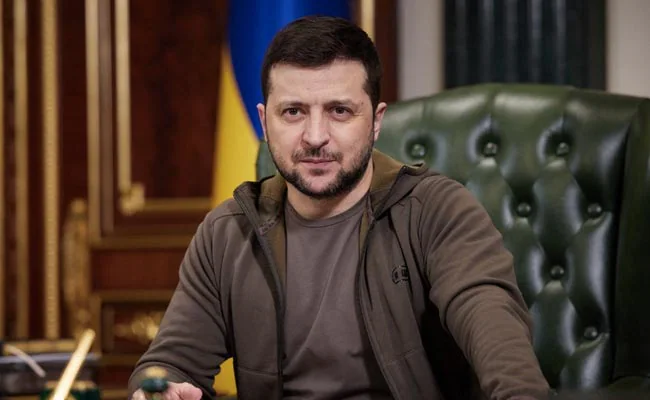Ukraine: Time to restrain President Zelensky
On November 15, 2022, an incident that could have pushed the world into a war occurred when a missile struck the village of Przewodow in Poland near the border with Ukraine, resulting in the deaths of two people. Preliminary investigations by military experts determined that the missile was an S-300 anti-aircraft missile that was fired […]

On November 15, 2022, an incident that could have pushed the world into a war occurred when a missile struck the village of Przewodow in Poland near the border with Ukraine, resulting in the deaths of two people.
Preliminary investigations by military experts determined that the missile was an S-300 anti-aircraft missile that was fired from Ukraine.
Following the incident, the world held its collective breath over the consequences, the most likely being a possible outbreak of war between nuclear-armed powers, Russia and the US-led North Atlantic Treaty Organization (NATO).
Ukraine President Volodomyr Zelensky sought to up the ante in the discussions on the issue by promptly claiming without evidence of an independent investigation that the missile was fired by Russian forces, who were, at the time of the incident, engaged in deep air strikes against Ukrainian targets.
Although President Zelensky’s accusation against Russia may have been plausible as such stray incidents are known to occur in war situations, his attempt, however, to get NATO to invoke Article 4 of its charter following the incident stirred both consternation and suspicion as to his motive for making such a call.
Article 4 of the NATO Charter calls for member states to carry out consultations with each other if one of them faces a threat to its territorial integrity and security. President Zelensky’s call in this regard was to push NATO into possibly invoking the subsequent Chapter 5 of its charter in order to come to the defence of its member, Poland, which would almost certainly have resulted in a retaliatory strike at Russia by NATO.
Aware that such a turn of events would almost certainly lead to war between NATO and Russia, which could easily become a worldwide nuclear conflagration, NATO leaders sought to de-escalate the tension. In a statement on the incident, the Polish foreign ministry said, “The course of events and the data that came in have led us to believe it was not a deliberate attack on Poland. According to our information, there was no plan to attack Poland’’.
NATO Secretary-General Jens Stoltenberg confirmed that initial investigations suggested that the incident “was likely caused by Ukrainian air defence missile fired to defend Ukrainian territory.” Similarly, US President Joe Biden, citing reports and conclusions from US intelligence, said from its trajectory, the missile could not have been fired from Russia.
The nuanced statements from these leaders and others were needed to de-escalate the tension caused by what obviously was a stray missile strike on Polish soil. Had they chosen to follow the path of tendentious rhetoric like President Zelensky of Ukraine sought, the world would have gone down the dangerous path of no return—into a needless nuclear war.
In consideration of the danger that the war poses to the world, we had cause in an editorial about a month ago to call on world leaders, statesmen and institutions to seek ways of bringing about a ceasefire in the Russia-Ukraine war. We made this call in the knowledge that a geostrategic war, such as what is going on between Russia and Ukraine, could turn for the worse on account of a miscalculation by any of the protagonists.
In that editorial, we mentioned that the world was already reeling from the economic effects of the Ukraine war, such that many economies in the world are feeling the crunch. There are forecasts of a looming global economic recession by the end of the year as a result.
With the incident that occurred in Poland, we believe the call for a ceasefire in the Ukraine war is even more poignant now than it was when we wrote last month. It is clear that although Russia, which first launched the invasion, stands condemned for that, President Zelensky of Ukraine, by his latest conduct in trying to drag NATO into a war with Russia under false circumstances, has become desperate and reckless, and thus constitutes a clear and present danger to the world.
In reiterating our call for a ceasefire now in Ukraine, which has now become more necessary and urgent as we did about a month ago, we urge President Zelensky’s western backers to rein him in as he has demonstrated, with the incident in Poland, that he would not mind instigating a nuclear confrontation between the two superpowers in desperation to “win” the war. But there can be no victory for any side in a nuclear war, because the whole world stands to lose.
Now that even his western backers, led by America, have seen enough of how desperate he can be, the time is ripe to restrain President Zelensky before he plunges us all into World War Three.
